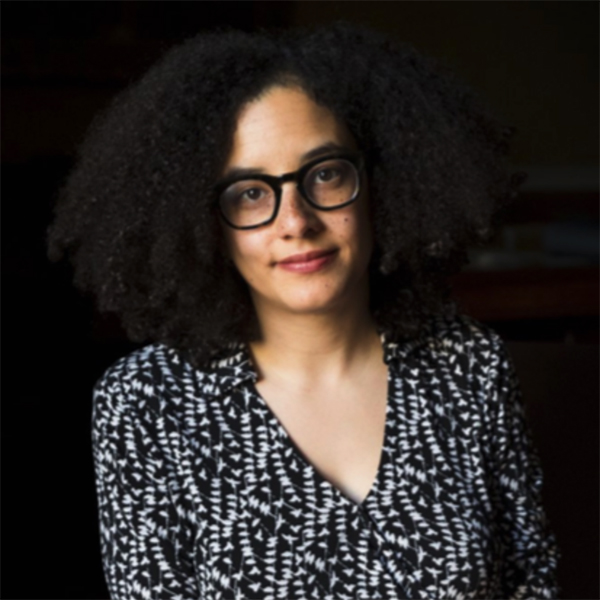
Brigitte Fielder, Assistant Professor of Comparative Literature at the University of Wisconsin-Madison, is serving as a Consulting Organizer for the 2020 Dickens Universe. Brigitte attended the Dickens Universe many years ago as a graduate student at Cornell University and has gone on to become a leader in the field of Nineteenth-century African-American studies, and in Frances E.W. Harper studies more specifically. Her book Relative Races: Genealogies of Interracial Kinship in Nineteenth-Century America, forthcoming from Duke University Press, features a chapter on Harper. In addition to delivering one of this summer's plenary lectures, Brigitte will be helping to develop resources and preparation materials for thinking across Iola Leroy and David Copperfield at the 2020 Universe.
The Dickens Project spoke with Professor Fielder about her return to the Dickens Universe and her hopes for this unique pairing for the 2020 Dickens Universe conference.
Could you describe your experience at the Dickens Universe the year you attended?
I had a very nice time. I attended with another graduate student from my institution, and he’s still a very good friend of mine. I workshopped some writing on Dickens that I was doing at the moment in one of the seminars. That is also where I met Ryan Fong, one of the current organizers for the conference.
How do you feel about returning to the Dickens Universe as a plenary speaker?
I am excited. I think it will be an interesting opportunity to see the extension of African American literature into a broader conversation about nineteenth-century literature more globally.
How do you hope to help the Dickens consortium study Iola Leroy this summer?
Well, I write about Iola Leroy in my forthcoming book, and I teach the novel frequently. While it is an extremely exciting and rich and amazing novel, it is also a rather difficult one to read well without a firm understanding of race and racialization in the U.S. I think it will be a real challenge for folks in Victorian literature, where the study of race and racism and Black studies, even in a global context, doesn’t take the place that it does in U.S. literature. So, I very much want to contribute to the project of making sure that the novel is treated well and responsibly at the Universe.
How would you recommend we as readers approach Iola Leroy? What frame of mind should we bring to the novel?
One of really being willing to engage with a body of literature that is not taught in mainstream U.S. education. My students often come to my classroom, knowing almost nothing about African American literature before 1900. As an early graduate student beginning my Master’s degree in literature, I too knew very little about African American literature from this period. For most people, unless they have made it a focus of their study, this will constitute a kind of gap in their literary education. Black women’s writing becomes a particular gap. This gap is not self-produced but is structural in nature. People do not know things about African American literature because it has never become as mainstream as Dickens. I often tell my undergraduate students, that they have been cheated in their education because they haven’t had access to the rich history of nineteenth-century African American literature. And with the knowledge that they have been cheated out of an education, they can use this as an opportunity to reclaim an education that has been omitted quite deliberately by both white supremacist and sexist distributions of literature. Koritha Mitchell’s excellent introduction to the Broadview edition, and the supplemental historical materials that she includes in the appendix provide a great introduction to the text. I really hope people will take full advantage of those materials.
How has Iola Leroy factored into your research?
Frances Harper is one of the most prominent African American writers of the 19th century. Iola Leroy is a very important text, for example, for thinking about the development of mixed-race heroine fiction. I write about it in relation to other nineteenth-century Africam American women’s writing, from Julia Collins’ The Curse of Caste to Frances Harper’s earlier novel, Mini Sacrifice, and also to a British text from the early nineteenth century, the anonymously authored novel, The Woman of Colour.
What is your connection to and interest in Charles Dickens?
For me, as someone who grew up reading 19tth-century British fiction, Dickens is, in many ways, a touchstone. For anyone interested in literature, it is hard not to be exposed to Dickens. When I was in graduate school, I took a seminar on Dickens, so Dickens is an author who is very much in the background for thinking about my literary training. I think that is something that ought to be interrogated because there are certain kinds of embodied people whose writing ends up canonized quite in that way. I think it goes without saying that Dickens wouldn’t hold the place he does in literary prominence if he weren’t a white man. In a 21st-century literary context, I think it is necessary to start to have these very hard conversations about how our focus on writers like Dickens sometimes leads to the exclusion of other writers, and this discussion of Dickens and Harper in the same space is a valuable opportunity to do that, particularly in a place that is historically dedicated to Dickens and Dickens studies.
Do you have a favorite Dickens novel?
Oh, that’s difficult! I do like Copperfield, and I remember liking Bleak House perhaps a bit more. It is hard to say what is a favorite and what isn’t a favorite. I guess maybe Bleak House.
